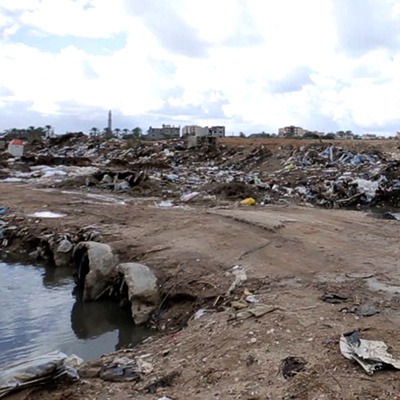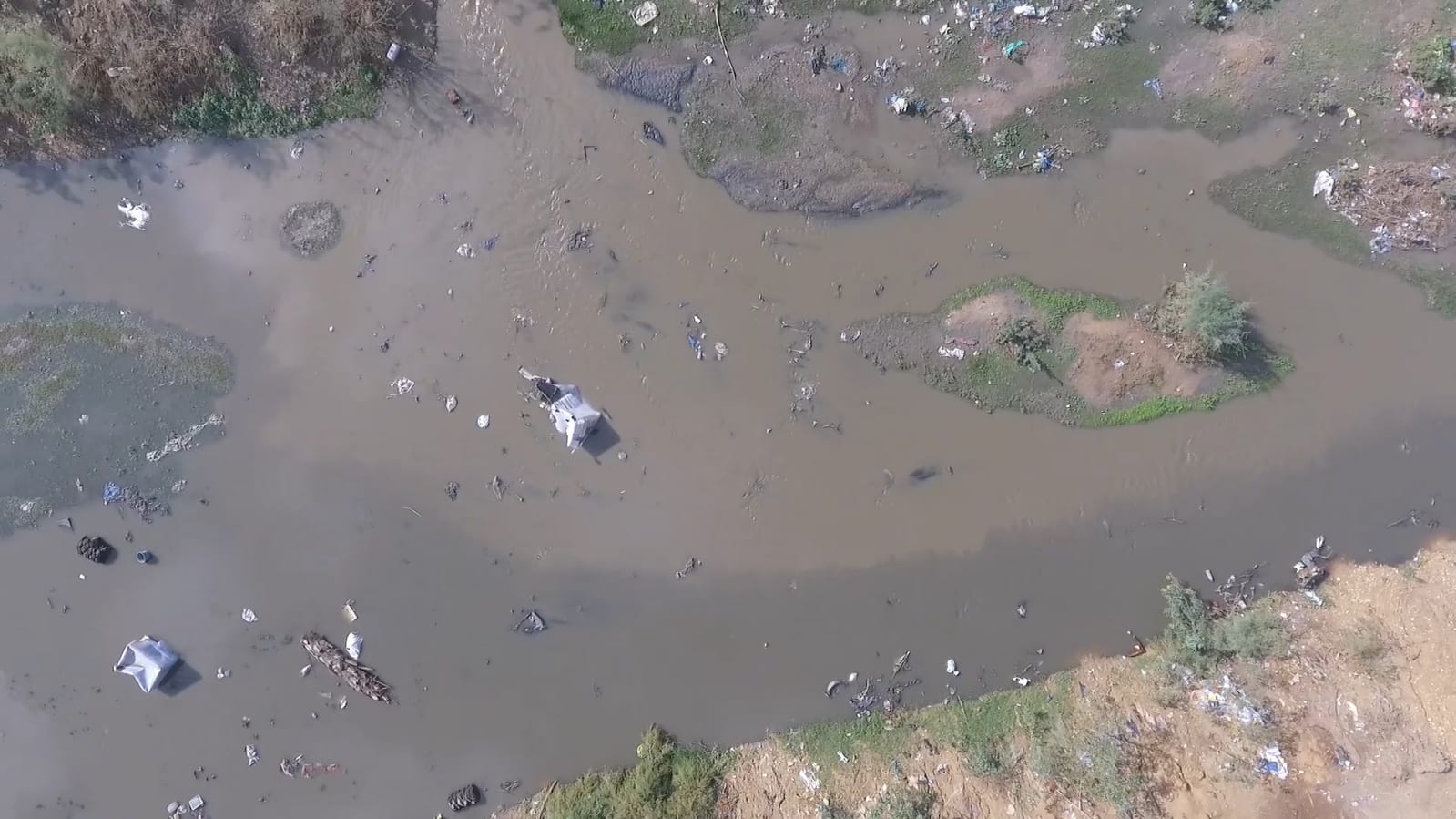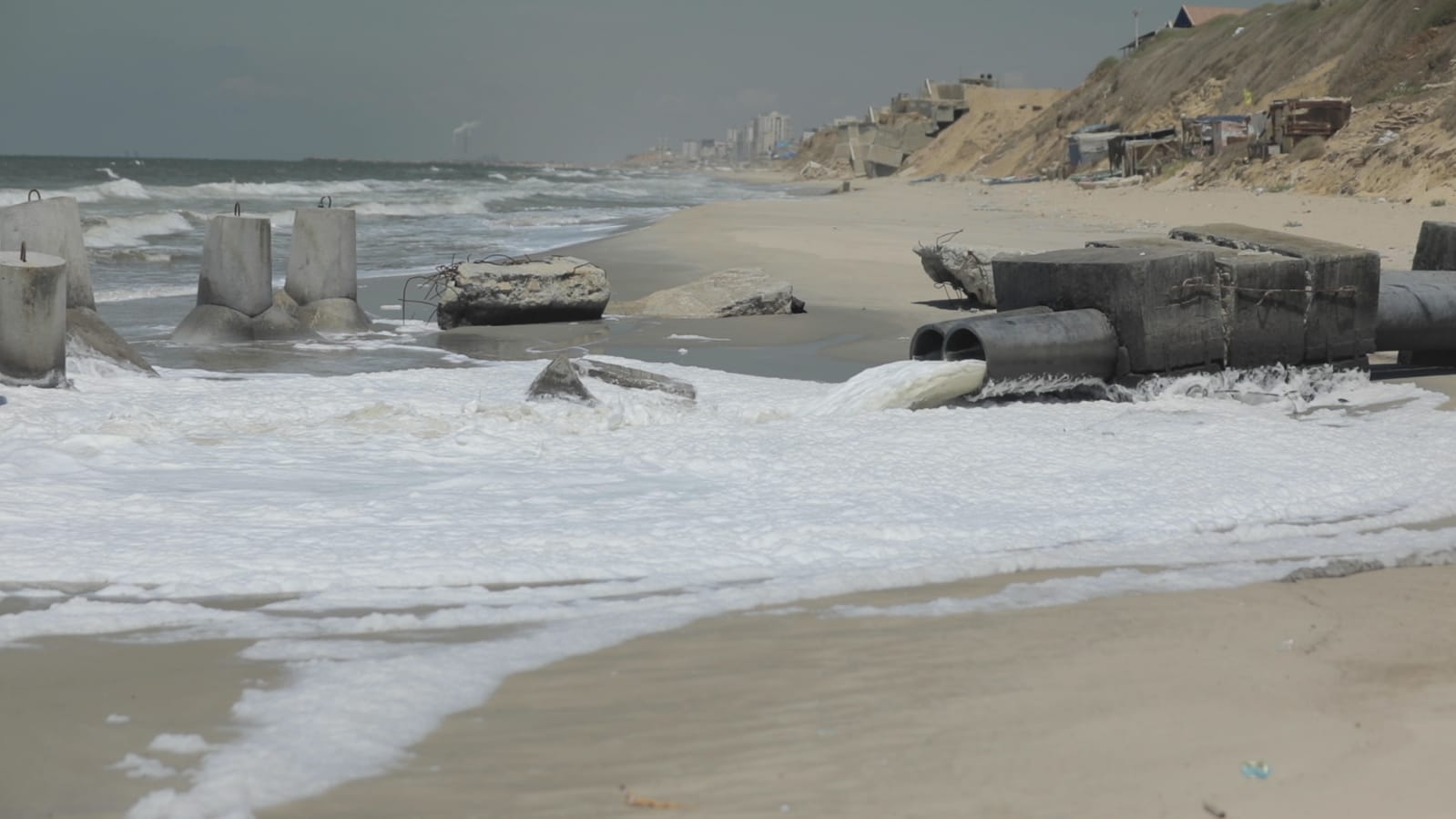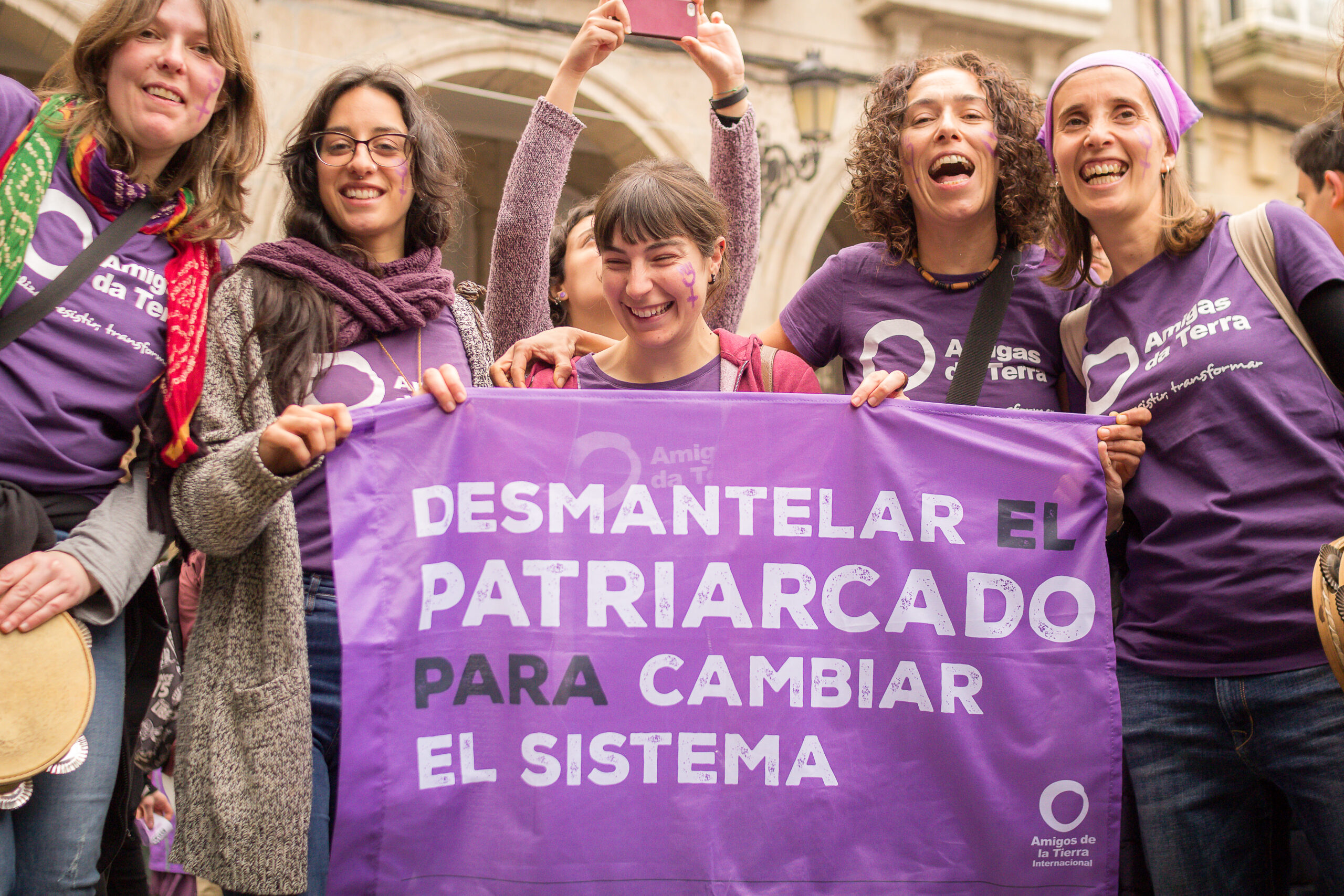Covid-19 in the Gaza Strip
How the Israeli military siege and environmental pollution are impacting public health
 PENGON - Friends of the Earth Palestine
PENGON - Friends of the Earth Palestine
“The Israeli occupation’s attacks on Palestinians have massively damaged health facilities and targeted health workers. The ongoing, direct attacks have caused thousands of injuries and hundreds of fatalities, which increases the burden on hospitals,” warned Palestinian researcher in health systems, Aisha Yousif Elbasuoni.
Meanwhile, environmental engineer Balqis Khozundar lamented that Gaza is experiencing an “environmental catastrophe.” Lack of access to drinking water, sanitation, electricity and fuel, as well as heavy air pollution, come as a result of the Israeli occupation’s blockade and damages caused by military attacks.
Aisha and Balqis, both Gaza residents, were interviewed by Real World Radio with the support of PENGON/Friends of the Earth Palestine, as part of PENGON´s actions to advocate for environmental human rights in Gaza, in cooperation with the Heinrich Böll Stiftung foundation. They were interviewed to gain insight about life in Gaza, the main challenges and obstacles in the fight against Covid-19 and the demands to the international community.
“Gaza is on the verge of becoming unliveable”
“Gaza has been reduced to a humanitarian whisper,” said Michael Lynk, UN Special Rapporteur for the situation of human rights in the occupied Palestinian territory, on Tuesday.
The expert hailed Monday’s agreement between Palestinian movement Hamas, which governs Gaza, and the Israeli administration to deescalate the almost daily violence experienced since 6 August in the Gaza Strip and the surrounding areas.
“Gaza is on the verge of becoming unliveable,” added Lynk, according to a news piece published by the Office of the High Commissioner for Human Rights (OHCHR), the UN’s main body on human rights.
The expert stated: “There is no comparable situation in the world where a substantial population has endured such a permanent lockdown, largely unable to travel or trade, and controlled by an occupying power in breach of its solemn international human rights and humanitarian obligations. Our international standards of dignity and morality do not allow such experiments in human despair.”
According to Lynk, as a result of this long blockade, the two million residents of Gaza are facing a collapsed health system, lack of drinking water, and inadequate and infrequent electricity supply, added to the dire economic situation, extreme poverty and unemployment levels that are among the highest in the world. The use of collective punishment by an occupying power, as the case of Israel in Palestine, is strictly prohibited by international laws, including Article 33 of the Geneva Convention relative to the protection of civilian persons in time of war (Convention IV).
Military siege and environmental catastrophe
“I want you to imagine that you don’t have water in your house for three days, it’s a disaster,” pointed out Balqis Khozundar. She explained that water is not suitable for consumption or cooking food, and that sometimes it is not even available. The engineer said that the environmental pollution affects ordinary people and that the air quality is even worse due to Israel’s military actions. Some of the most common diseases found in Gaza include cholera, salmonella and cancer.
Balqis added that another serious problem is the lack of electricity. Gaza is living in a catastrophic environmental situation, she denounced, adding that the Israeli occupation and blockade against Gaza are key causes of this situation, as they make it impossible to access filters or other important devices for waste water treatment.

Regarding what the international community could do, our interviewee demanded pressure on Israel to immediately end its siege on the Gaza Strip and to at least ensure the basic human rights of the Palestinian people.
Coronavirus in Gaza
According to figures of the Palestinian Ministry of Health accessed on 3 September, the total number of Covid-19 cases recorded in the West Bank and the Gaza Strip amounted to 31,929, with 10,070 active cases, 21,670 people recovered and 189 deaths. Taking in to account the Gaza Strip alone, the total number of cases was 581: 500 active, 76 recovered and 5 deaths.
The Palestinian authorities implemented emergency and lockdown plans to deal with Covid-19, which at one point included a curfew in the Gaza Strip as a precautionary measure.
Aisha, who is also the head of the Projects and Fundraising Unit at the Gaza Community for Mental Health Program (GCMHP) warned that Israel’s actions seriously hinder the possibilities to address Covid-19 in an effective way. “These humanitarian difficulties are expected to deteriorate further as a result of Covid-19,” she said.
Aisha is certain: the serious humanitarian situation is a consequence of the 72 years of Israeli occupation in Palestine and the over 13 years of siege in the Gaza Strip, added to the regular Israeli military attacks.
Her expertise comes from a long career in livelihood and business development projects under humanitarian and conflict settings, along with a Master’s degree in Business Administration and a Major Bachelor Degree in Control and Communications Engineering with more than ten years’ experience in working with the United Nations Relief and Works Agency for Palestine Refugees in the Near East (UNRWA) and community-based organisations at the Gaza Strip.
She is also member of the Organisation for Women in Science for the Developing World (OWSD), which is part of the United Nations Educational, Scientific and Cultural Organisation (UNESCO).
“Being poor means living conditions are unhealthy and overcrowded. Access to clean water and good food is nonexistent and buying disinfectants, gloves and masks is unaffordable,” said Aisha about the situation in Gaza.
“According to the World Health Organisation, physical distancing is a proactive measure against Covid-19. However, it is difficult for two million Palestinians living in overpopulated areas to practice physical distancing,” she argued. The expert also explained that overpopulation in the Gaza Strip is a consequence, among others, of the Israeli military siege and the strict restrictions imposed on transit to and from that city.

Aisha made reference to the serious difficulties in dealing with the pandemic effectively: “personal hygiene and hand washing are one of the most important measures to prevent the spread of Covid-19. However, as a result of the destruction of Palestinian infrastructure by systematic Israeli attacks, sanitation systems are almost nonexistent.”

On 3 July, environmental federation Friends of the Earth International condemned Israel’s plan to annex the major part of the West Bank. Their statement concluded that “Palestinian peoples face the impacts of environmental injustice in their daily lives” due to the actions of Israel and that they witnessed these injustices during solidarity missions to Palestine in 2012 and 2013.
A collapsed health system
Aisha told Real World Radio that there are four kinds of health providers in Palestine: the Ministry of Health as regulator and the main provider, UNRWA, the private sector and also NGOs. She added that as a consequence of political instability, the health system is fragmented, with difficulties coordinating the key players and scarce resources. “These elements are crucial to design and implement effective health emergency plans.”
Aisha also pointed out that daily electricity shutdowns are hindering work in hospitals, affecting water and sanitation systems and preventing adequate attention to people in lockdown centres.
The researcher noted that “a more concise and unified plan with a long term vision” is needed to effectively combat the pandemic. She argued that the Covid-19 crisis has further exposed the failures of the public health system, its weakness in terms of governance, as well as the lack of preparation and investment. “The pandemic is an opportunity for governments and donors to address these priorities,” she said.
She also highlighted that Palestine needs financial and food support to alleviate the social and economic impacts of the pandemic and to prevent a larger collapse, especially for the most vulnerable inhabitants, such as refugees and those who live in inaccessible lands. Moreover, she called on national and international human rights and political advocacy organisations “to put pressure on Israel” to end its siege on Palestine.
* All images used here are from PENGON – Friends of the Earth Palestine
** The quotes included in this piece are, of course, the responsibility of the interviewees. The rest of the piece is the full responsibility of Real World Radio (Friends of the Earth International).






